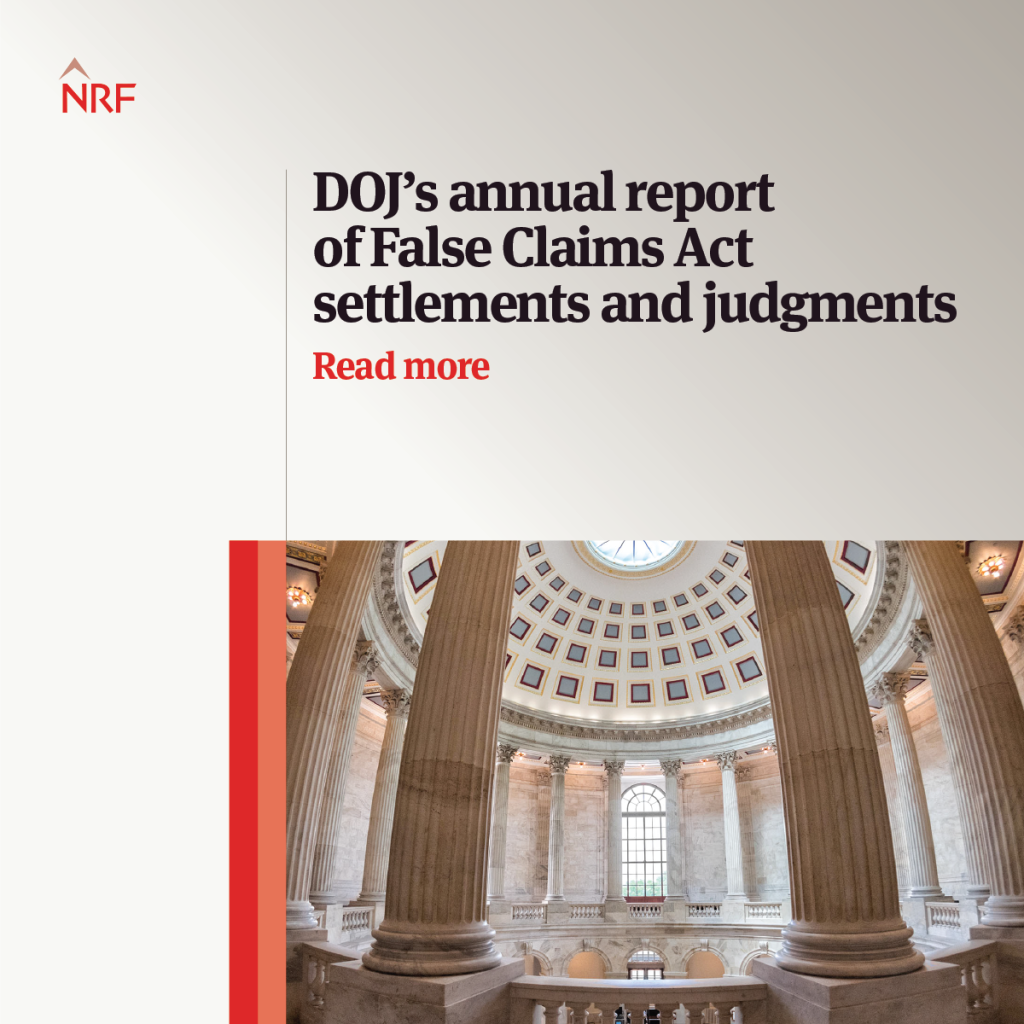Listen to the article
DOJ Signals Expanded Enforcement as False Claims Act Recoveries Reach $75 Billion Milestone
The United States Department of Justice reported a record 543 settlements and judgments under the False Claims Act in 2023, though the financial recovery of $2.6 billion fell below historical averages. This figure, while higher than 2022 and 2020 totals, remains lower than each year from 2010-2019, according to the DOJ’s annual report released on February 22, 2024.
With these latest recoveries, total settlements since the Act’s modern revival in 1986 have surpassed $75 billion, reinforcing the DOJ’s characterization of the False Claims Act as the government’s most potent tool for combating fraud against federal programs.
Healthcare fraud continues to dominate the recovery landscape, accounting for $1.8 billion of the $2.6 billion total. The DOJ highlighted significant cases targeting the Medicare Advantage (Medicare Part C) program, the largest Medicare component, where companies allegedly submitted inaccurate information about beneficiaries’ health status to increase reimbursements.
Other healthcare sector settlements focused on unnecessary medical services, substandard care, opioid epidemic-related violations, and unlawful kickback schemes. Industry analysts suggest the health care and life sciences sectors will remain primary targets for qui tam whistleblowers, underscoring the need for companies to strengthen compliance programs and conduct targeted training based on recent enforcement patterns.
Beyond healthcare, the DOJ reported significant procurement fraud cases and pandemic-related enforcement actions. The latter resulted in 270 False Claims Act cases and recovered $48.3 million in improperly obtained Paycheck Protection Program loans. The department also emphasized its ongoing cyber-fraud initiative, launched in October 2021, which aims to enhance cybersecurity compliance among government contractors and grant recipients.
In a potentially significant shift, the DOJ signaled heightened scrutiny of third parties that may cause the submission of false claims. Principal Deputy Assistant Attorney General Brian M. Boynton, speaking at the Federal Bar Association’s Qui Tam Conference on the same day as the report’s release, specifically identified private equity and venture capital firms as entities that may face liability.
Boynton cautioned third parties who “influence patient care” and potentially “undermine medical judgment” through direct business direction or indirect pressure via revenue targets that prioritize reimbursement over proper care. This warning represents a potential expansion of enforcement focus beyond direct contractors to their financial backers and business partners.
The vital role of whistleblowers in identifying fraud continues to grow, with $2.3 billion of the $2.6 billion in recoveries originating from qui tam lawsuits. Whistleblowers received $349 million in rewards during 2023, providing powerful financial incentives for insiders to report suspected violations.
The filing rate for new cases remains extraordinarily high, with 712 qui tam suits filed in 2023 – nearly two new whistleblower lawsuits each day. This represents a dramatic increase from the mere 31 cases filed in 1987, shortly after the Act’s modernization.
Legal experts suggest that while 2023’s financial recoveries were somewhat lower than historical peaks, the unprecedented number of new cases filed could lead to substantially higher recoveries in coming years as these investigations mature.
As the False Claims Act approaches $100 billion in cumulative recoveries, companies working with government programs face an increasingly complex enforcement landscape, particularly with the DOJ’s expanded focus on third-party enablers and its continued reliance on whistleblower-initiated actions.
Fact Checker
Verify the accuracy of this article using The Disinformation Commission analysis and real-time sources.




10 Comments
The opioid epidemic has had devastating consequences, so it’s good to see the DOJ targeting related fraud cases under the False Claims Act. Holding companies accountable for unethical practices can help address this public health crisis.
Combating opioid-related fraud is an important component of a comprehensive strategy to tackle the epidemic. Ensuring accurate reporting and appropriate use of these powerful medications is critical.
The rise in Medicare Advantage fraud cases is concerning. Inflating beneficiary health status to boost reimbursements is a clear abuse of the system. Strong oversight and accountability measures are needed to protect the integrity of these programs.
Ensuring accurate reporting and appropriate care in Medicare Advantage should be a top priority. Cracking down on these fraudulent practices will help maintain the viability of this important healthcare program.
The healthcare sector’s dominance in False Claims Act recoveries is not surprising given the size and complexity of federal healthcare programs. Addressing fraud in this area has significant financial and public health implications.
Fraud targeting Medicare and Medicaid programs is particularly concerning as it diverts resources away from patient care. Robust enforcement must remain a top priority to protect these vital safety nets.
This report highlights the DOJ’s continued focus on combating fraud across federal programs, especially in the healthcare sector. It will be interesting to see if the lower financial recoveries in 2023 are a temporary dip or a longer-term trend.
The $75 billion recovered since the False Claims Act’s revival is an impressive milestone. Rigorous enforcement and hefty penalties are essential to deterring fraud and safeguarding taxpayer funds.
While the total financial recoveries dipped in 2023, the record number of settlements and judgments suggests the DOJ remains vigilant. Continuing to aggressively pursue a wide range of fraud cases is crucial to safeguarding public funds.
While the lower financial recoveries in 2023 may raise some questions, the DOJ’s continued focus on a wide range of fraud cases across different sectors is commendable. Maintaining vigilance is crucial to upholding the integrity of federal programs.